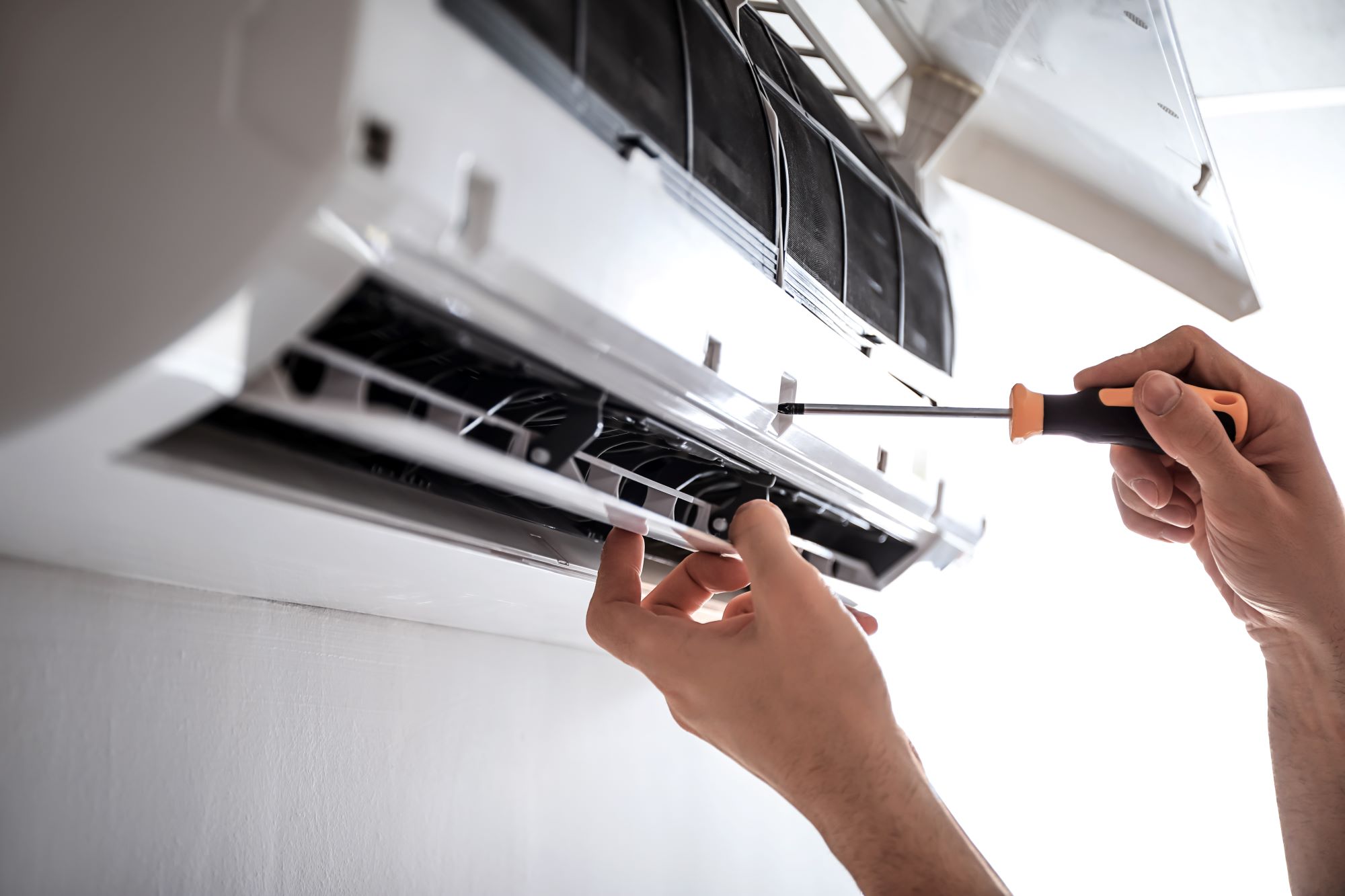During summer, the usage of air conditioning units increases considerably due to high temperatures. However, you can often encounter difficulties turning on your air conditioners, particularly after extended inactivity. Fortunately, most common air conditioning issues are easy to fix, and you don’t have to be an expert to tackle them. It’s crucial to give your units a thorough check-up before starting them.
Similar to all electrical devices, air conditioners require regular maintenance checks. This enables you to identify any possible problems before they become expensive repairs. Being proactive in this regard also helps extend the standard lifespan of your AC system and other essential benefits.
Here are some common air conditioning problems and how to fix them.
1. Dirty AC Filter
The air filter in your air conditioning unit filters dust, pollen, and other contaminants. If it gets dirty or clogged, it can cause your AC to work less efficiently, increasing energy bills, and decreasing comfort levels.
Typically, dispensable filters are present in most AC systems, which can be conveniently removed and substituted. Moreover, if the filter is renewable, it can be washed with water and air-dried before reinstallation. Ensure to change your air filter regularly, usually once a month during peak usage.
2. Refrigerant Leaks
Refrigerant is the working fluid that cools the air in your AC unit. If there’s a leak, your unit won’t be able to cool the air effectively.
The following sign of a refrigerant leak:
- A hissing sound is coming from the unit
- Reduced cooling capacity
- Ice buildup on the unit
The gradual deterioration of lines and connections in the AC system can result in refrigerant leaks. Water leaks, on the other hand, are often caused by obstructed drainage ducts and defective diffusion pumps.
In the event of a refrigerant leak, switching off the unit immediately and contacting a professional for assistance is essential. Low refrigerant levels can cause significant damage to the compressor, which is one of the most expensive elements to replace. Fortunately, regular maintenance inspections can identify such issues, and HVAC technicians can add more refrigerant as needed.
3. Faulty Thermostat
A prevalent issue with household air conditioning units is a dysfunctional thermostat. A malfunctioning thermostat could be the culprit when you feel your air conditioner blowing warm air and the AC frequently turning on and off. An accumulation of rust or dirt could cause this, such as drained batteries or loose connections and screws within the thermostat. Another possible cause is exposing the thermostat to direct sunlight, affecting its accuracy. Additionally, incorrect calibration may result in the thermostat not working accurately.
The thermostat is the control center of your air conditioning unit. If it’s not functioning correctly, your AC won’t work efficiently. If your unit isn’t cooling or turning on and off frequently, check the thermostat settings and replace the batteries if needed. Additionally, consider the placement of your thermostat. It’s recommended to position it in a frequently occupied area that is shaded. Upgrading to a smart thermostat can resolve the issues with your old thermostat and allows you to control the settings using your mobile phone, potentially reducing energy bills. If you’re in areas like Raleigh and in need of excellent services from a trustworthy AC repair company, Bowman Mechanical Services can sort you out.
4. Poor Airflow
When you experience uneven temperature distribution or imbalanced pressure within your house, it signifies an HVAC airflow problem. This arises when the fan fails to circulate sufficient air for different reasons, such as a contaminated air filter or a defective blower motor. Leaking ducts, blocked ducts, or low refrigerant levels can also cause this issue. This can be an unpleasant issue, especially during the hot summer season.
To troubleshoot this issue, check and replace your air filter if needed. If your ducts are blocked, you may need to clean the coils. If your fan motor is malfunctioning, it’s best to call an HVAC technician to repair or replace it.
5. Unusual Noise
Noticing unfamiliar sounds coming from your air conditioning unit should raise concerns. Unusual squeaks, vibrations, or grinding noises indicate a serious issue that should be addressed immediately. Squealing noises may indicate a worn or misaligned belt, while grinding sounds can signal problems with the motor bearings, which can be a severe concern for the AC unit.
These disturbing sounds can also indicate functional inadequacy, resulting in higher energy consumption. The noise issue can be resolved by addressing and fixing the issue causing the sound. During routine maintenance, ensure that certified technicians inspect the belts, cushion the condenser motor, and lubricate the bearings. This can prevent loud noises from happening in the future.
Conclusion
Air conditioners are intricate systems that demand routine maintenance and upkeep to work correctly. Failing to maintain them can result in higher energy bills, decreased cooling performance, and even complete system breakdowns.
Routine maintenance can help keep your AC unit running smoothly and prevent latent problems. With the instructions above, you’ll know how to address the most prevalent AC issues efficiently. A professional inspecting your AC system at least once annually to avoid such problems is recommended.


